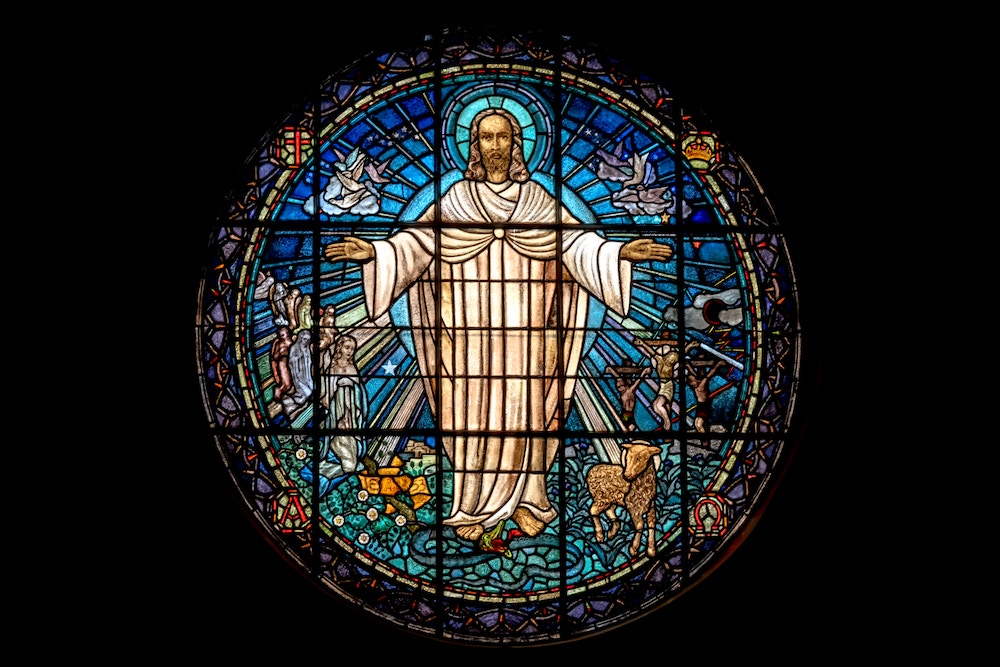
(Unsplash/Paul Zoetemeijer)
Thomas said, "I won't believe it until I see it." If Mark the Evangelist had been in the room he would have asked, "What is it that you don't believe? Do you really doubt that God could raise the martyred Jesus? Or is your problem that you doubt that sin can be forgiven?" Mark would ask that because long before John wrote his Gospel, he popularized the story of the paralytic who was healed and forgiven when his friends brought him to Jesus. The way Mark shared that story demonstrates that refusal to forgive paralyzes everyone. It freezes the offenders in their worst moment and builds an impenetrable wall around the heart of the offended, a wall designed to keep even God from breaking through.
If we listen to today's Gospel with the long view in mind, we'll see that it's much like the Christmas narrative, the creation myths and the history of Moses and the people of God. The story line is the same: God's love is unquenchable. God comes offering humanity forgiveness, peace and integrity, over and over again.
That's hard for us to accept. We want to earn our own way; we fool ourselves into thinking that we can handle our own failings and even judge others' wrongdoing. John depicts refusal to believe, barred doors and fear, to assure us that the risen Christ is capable of breaking through any barriers we put up to protect ourselves from being overwhelmed by grace. Bolts, gates and walls are powerless to restrain Christ, but he won't force us to recognize and accept him. As he did with Thomas, Christ takes us at our word and invites us to more.
We frequently hear that the disciples didn't recognize Jesus when he appeared. What brought Thomas and the rest around was not his physical appearance, the terrifying scars of death undergone and overcome, but the peace he transmitted. Jesus' shalom communicated a quality of presence that went beyond the physical. To those who were open to it, Jesus' shalom was a force that drew them into a new realm of life. The First Letter of Peter refers to it as "birth into a living hope."
The only problem with that peace is that it's immensely humbling. We can't earn it and we don't deserve it. It is as much a gift as are our very lives. It is love offered before we can even imagine it, much less think to ask for it or try to win it. Jesus' resurrection appearance in the upper room recapitulated all of salvation history. Jesus' greeting of peace said, "This is why God created. This is what God was doing in sending Moses to lead you out of slavery. This is what the prophets tried to tell you is possible!" Jesus' greeting of peace said, "You can never be sinful, vengeful or stubborn enough for God to give up on you. You are loved because you are loved. That's it, take it or leave it, but you can't change it."
Advertisement
The more we take in that message, the more we allow shalom to permeate our being, the more naturally we will proclaim shalom through the way we live. Jesus insisted that the gift of shalom commissions disciples into a ministry of forgiveness. We are given peace so that we can spread it. The very nature of Christ's peace is social — it impels us to offer it to others and forgiveness is always included in the package.
Thomas the questioner reminds us that this is not just a theory or a nice refrain. We never hear that Thomas actually touched the risen Christ's wounds — only that Christ encountered him with peace and offered him the chance to test it. Thomas can be our hero because he asked for more, he was honest enough to say, "I don't get it. Until I feel it, I can't pretend." Mark the evangelist would tell us that Thomas learned that kind of stubborn, prayerful integrity from the desperate dad who asked Jesus to heal his son saying, "I do believe, help my unbelief!"
Thomas didn't say, "I give up." He said, "I won't believe it until I feel it." He wasn't closed to the Gospel, but he refused to accept a cheap substitute. Thomas had the integrity to say, "I'm not there yet," and that was a proclamation that he wanted more faith than he had. Thomas appears today to call us to integrity and the humility to be forgiven and to forgive.
The Resurrection accounts remind us that Christian faith is a long and costly journey into forgiveness and peace. Thomas reminds us that doubt is more valuable than superficial faith and that humility and integrity are essential conditions for giving and receiving the grace of forgiveness.
[St. Joseph Sr. Mary M. McGlone is currently serving on the congregational leadership team of the Sisters of St. Joseph of Carondelet.]
